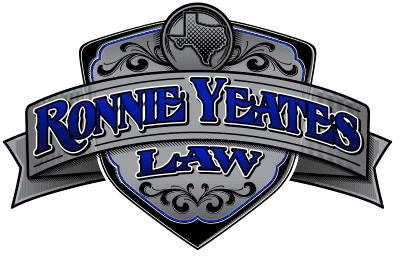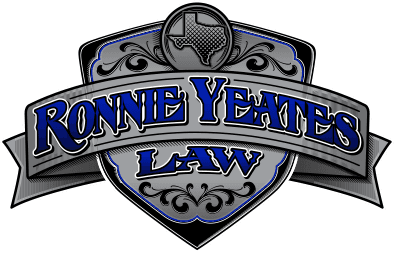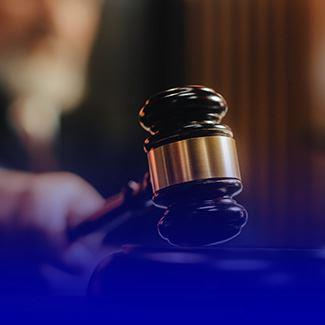
DUI Lawyer The Woodlands
Defending Against DWI/DUI Charges in Montgomery County
If you need a DWI attorney in The Woodlands, Ronnie Yeates is the attorney for you. DWI arrests are stressful. Many people arrested for a first DWI are experiencing their first time with the criminal justice system. If you are concerned about the possible penalties, you must have a successful attorney to represent you.
Trust Ronnie Yeates to fight to do everything possible to win your case. Ronnie Yeates has over 25 years of experience in criminal matters. He has a wide range of experience dealing with cases. Save yourself the stress and hire a DWI defense lawyer to fight the charges against you. If you’re charged with a DWI, make sure to call Ronnie Yeates. He will use all available resources in your case.
Choosing the right legal representative is crucial, especially in DWI cases that could impact your driver's license, employment, and future. Ronnie Yeates leverages his extensive background in prosecution to identify weaknesses in the prosecution's case and to strategize effectively on your behalf. His dedication to continuous learning and the application of innovative defense strategies ensures that you receive cutting-edge representation. By understanding the nuances of local and state DUI laws, he provides valuable guidance tailored to your specific situation. This comprehensive approach empowers clients and offers confidence in achieving the best possible outcome.
Have you been accused of a DWI? Call Ronnie Yeates Law today at (832) 957-9077 or contact us online to schedule a free consultation with our DWI attorney in The Woodlands.
Attorney Ronnie Yeates has over 20 years of experience in criminal law. Get the representation you need by filling out an online contact form or calling our team today: (832) 957-9077.
During a traffic stop, police almost always ask drivers if they have consumed alcohol. You don’t have to answer. Most motorists will respond with something like “just one or two,” which is often an underestimation of how much they drank. The police won’t stop there if they see other signs and think you are intoxicated. Most cops will want to continue investigating after receiving confirmation you have been drinking, regardless of the amount.
Traffic Stops & Probable Cause
If the police have probable cause to believe your car contains incriminating evidence, they can search it without a warrant. An officer might notice or smell something during a DWI investigation, causing them to suspect the car contains drugs. If this is the case, police might be justified in searching the car’s interior, trunk, glovebox, and other closed containers, such as backpacks. Driver consent is another reason to search your car. If you permit the police to search your car, they can — and will.
The officer who arrested you claimed that they had reasonable suspicion to pull you over. They administered a sobriety check, read you your rights, and then placed you in handcuffs. You were most likely requested to submit a chemical sample through a Breathalyzer test once you arrived at the station. After everything was said and done, you were probably placed in a cell until you paid bail or were taken to court. Pay attention to the details of your arrest — looking for errors in this stage can help you avoid DWI charges.
Understanding your rights during a DWI stop is paramount. Being informed about your legal rights can prevent self-incrimination and help form the basis of a strong defense. Always remember, you have the right to remain silent, and anything you say can be used against you. If you've been stopped for suspected DUI, insisting on speaking with a dui defense attorney ensures you are adequately represented from the very beginning. Moreover, a well-versed attorney will be able to scrutinize the methods employed during your stop and arrest, potentially identifying any procedural missteps that could benefit your defense.
Field Sobriety Tests: What You Need to Know
The standard field sobriety test consists of the horizontal gaze nystagmus test (eye), the one-leg stand, and the walk-and-turn tests. These tests are used to determine whether a person is intoxicated; they are subjective and provide more evidence to police officers. Texas law doesn’t require you to take them, but refusing to take these tests could result in an arrest.
It is important to understand that field sobriety tests have limitations and can sometimes lead to false conclusions. Factors such as medical conditions, physical disabilities, stress, or even the shoes you are wearing can influence the outcome of these tests. Therefore, challenge the results with your dui lawyer, as they could demonstrate these other factors and weaken the prosecution's position. Gathering witness statements and video footage during the test can also be vital components in constructing a robust defense.
Understanding PBT Devices
A PBT device (also known as a portable breath test) is a handheld device police use to determine a driver’s blood alcohol content. These devices can allow police to estimate a driver’s BAC quickly and easily. The results of a PBT are not as reliable as breath or blood tests performed at a hospital or police station. A PBT test is not admissible as evidence for trial, but rather, it is another clue officers use to determine whether there is probable cause to make a DWI arrest. If the police believe there’s probable cause to arrest for impaired driving, you will be cuffed and taken to the local police station or jail. Police usually confiscate your driver’s license when you are arrested for DWI and give you temporary paper driving permits. The temporary permit lasts for 40 days or until there is a negative finding at the Administrative License Hearing, whichever is later. You will be cited and booked by the police at the jail. You will usually remain in jail until bail is posted or a judge frees you on your “personal recognizance.” If you were detained on Friday and weren’t bailed out, you can spend the weekend in jail.
Understanding the operation and limitations of a PBT device is essential in mounting an effective defense. Any malfunction, improper operation by law enforcement, or environmental factors could skew results. Engaging with a well-versed dwi lawyer will assure that every detail of the PBT deployment is scrutinized. A thorough review of maintenance records of the PBT device and officer training documentation might disclose critical inconsistencies favorable to your defense.
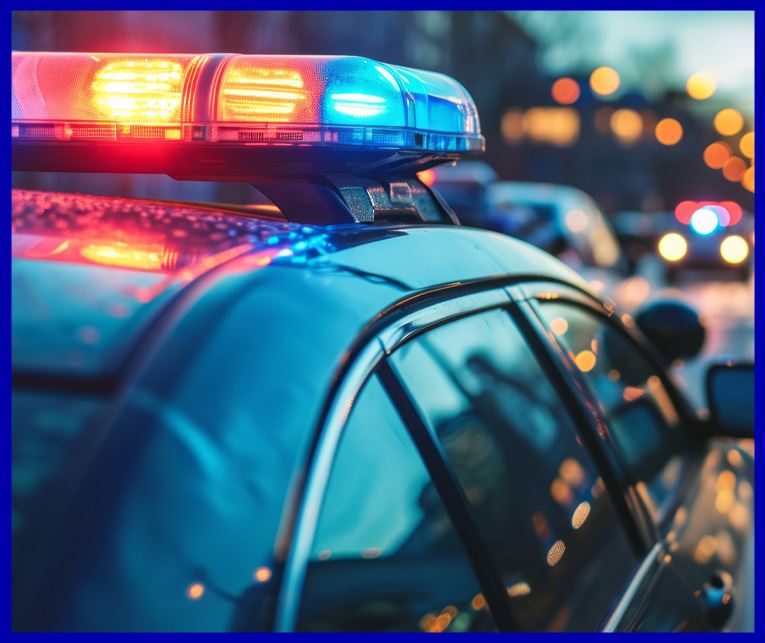
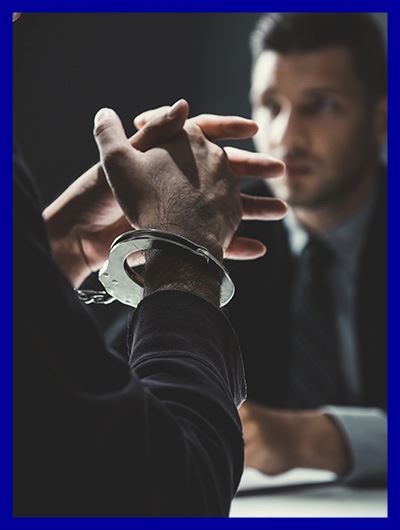
What Happens After a DWI Arrest?
A judge will read through the charges against you at your arraignment hearing and ask you to plead guilty or not guilty. Your plea will determine when your next court date is set. Despite how tempting it may be to forget about this, you should not plead guilty until you have spoken with an attorney. DWI convictions can cause problems in everything from getting future employment opportunities to renting a house to securing a rental agreement. If you have the right legal team, you can still dismiss DWI in Texas, even if you’re guilty. Except in exceptional circumstances, you have the right to have a bail set within 48 hours after your arrest.
The bail would be determined based on your criminal history, the status of your charges (felony or misdemeanor), whether any person was injured or killed, and any connections you have within your community. Before you are released, the judge might also place conditions, such as the installation of an ignition interlock device on your vehicle. You can bring your lawyer to the hearing if you are unsure about the requirements of your bond.
Following a DWI arrest, understanding the court process can be daunting. It's vital to lean on your dui defense lawyer, who can navigate you through each phase comprehensively. From ensuring accurate charge details to arguing for reasonable bail, their support is invaluable. Preparing for hearings and exploring options like plea bargains or alternative resolutions can significantly impact the outcome of your case. Early intervention by a knowledgeable lawyer ensures all avenues are explored and maximizes the chance of a favorable resolution.
Texas DWI Laws: What You Should Know
Driving while intoxicated by alcohol or drugs (DWI) is a serious criminal offense in Texas. A DWI can result from a blood alcohol content (BAC) above .08%, being intoxicated with drugs, or a combination of both alcohol and drugs. Commercial driver’s license holders (CDL) can also be charged with DWI if they have a blood alcohol concentration (BAC) of more than 0.04%. Underage drivers (under 21) can also be charged with driving under the influence (DUI) if they have any detectable amount of alcohol in their system.
If you refused to take a blood or breath test, had a BAC of greater than 0.08% while driving a non-commercial motor vehicle, or a BAC of 0.04% while driving a commercial motor vehicle, your license is at risk for suspension or disqualification. Within 15 days of the date the suspension notice was served, you must request an ALR hearing. Your license will be suspended 40 days from the date you were served notice if a hearing is not requested. After laying out the charges against you, the judge will give you the chance to plead guilty or not guilty. If you plead not guilty, your DWI case will be reset for another date. You will be sentenced if you plead guilty. Unless dismissed or found not guilty, the DWI charge will remain on your criminal record forever.
Texas' stringent DWI laws are designed to prevent impaired driving and improve road safety. With varying penalties based on age, BAC levels, and whether a commercial vehicle was involved, understanding these nuances is key to defending against DWI charges. Additionally, the Administrative License Revocation (ALR) process can compound issues, as it directly affects your ability to drive. Engaging a seasoned dui attorney familiar with Texas' complex legal framework is crucial for navigating these circumstances. Their in-depth knowledge can help challenge evidence, question procedural errors, and potentially minimize penalties.
Penalties for DWI Offenses in Texas
- A first DWI offense is a Class B misdemeanor if your BAC is greater than .08% and less than .15%. It can result in a sentence of between 72 hours to 180 days in jail, a maximum $2,000 fine (not including the mandatory $3,000 state fee), and a driver’s license suspension of up to one year.
- If your BAC is at least .15%, it is a Class A misdemeanor, and you can be penalized with up to one year in jail, a fine up to $4,000, a suspension of your driver’s license for up to one year, and a mandatory state fee of $6,000.
- A second DWI is also a Class A misdemeanor, which can result in a sentence of 30 days to one year in jail, a fine up to $4,000, a license suspension of up to two years, and a $4,500 or a $6,000 mandatory state fee.
- A third DWI offense is a third-degree felony, which can lead to a sentence of between two and 10 years of imprisonment, a maximum $10,000 fine, license suspension for up to two years, and a mandatory state fee of up to $6,000.
Beyond legal sanctions, DWI convictions influence personal and professional aspects of life. Loss of driving privileges can impact employment and mobility, while high fines impart financial stress. Potential jail time can disrupt family dynamics and personal well-being. Therefore, understanding the full implications is pivotal, and seeking the services of an experienced dwi lawyer can help elucidate your options. Their counsel can aid in possibly reducing these penalties through legal negotiation and advocacy.
Implied Consent Law in Texas
Texas’ implied consent law requires all licensed drivers to consent to a breath test or blood draw to check their blood alcohol content or detect any drugs in their system. Refusing to submit to a post-arrest chemical test will result in your driver’s license being suspended for 180 days for a first offense. A refusal to test after you have had at least one “enforcement contact” with an alcohol or drug-related officer within the past 10 years can lead to a two-year license suspension.
A DWI conviction will be a permanent record you carry around, making it difficult to find employment, get housing, apply for college/university, and lead a normal lifestyle. A Texas DWI conviction will remain on your criminal record for life. DWI convictions are not eligible for expunction (removal). A person convicted of DWI in Texas may be eligible for an order of nondisclosure (record sealing) under certain circumstances.
Strategies to Fight Your DWI Charge
Facing a DWI charge can be a very daunting experience, but you can navigate the legal landscape effectively with the right defense strategy. The state of Texas has stringent laws concerning driving while intoxicated, and being informed is the first step in building a strong defense. Some common defenses against DWI charges may include:
- Challenging Traffic Stops and Arrests: One of the key aspects of fighting a DWI charge is examining the circumstances leading to the traffic stop and subsequent arrest. We can meticulously review the details of your DWI case, looking for potential violations of your constitutional rights. If law enforcement fails to adhere to proper procedures, it could be crucial to your defense strategy.
- Disputing Field Sobriety Tests: Field sobriety tests are often administered during a DWI stop, but their reliability is questionable. We can scrutinize the administration of tests, the conditions under which they were conducted, and any factors that may have influenced the results.
- Examining Breathalyzer Results: Breathalyzer results are common evidence in DWI cases, but they are not infallible. Any discrepancies or irregularities can be exploited to cast doubt on the reliability of the results.
Effective defense begins with a comprehensive evaluation of each charge. Examining calibration records of breathalyzer machines, interviewing witnesses, and revisiting the arrest timeline can unveil irregularities advantageous to your defense. An experienced dui attorney will delve deeper, contest procedural gaps, and propose feasible alternatives such as rehabilitative programs in lieu of harsher penalties. By dissecting every facet of the DWI case, this comprehensive defense approach seeks to undermine the prosecution's stance and work towards a more favorable resolution.
Contact Our DWI Attorney in The Woodlands for Legal Support
If you’re facing legal troubles related to DWI, you don’t have to go through it alone. Our The Woodlands DWI lawyer is here to help you navigate the complexities of your case and provide you with the skilled legal representation you need. We understand the stress and uncertainty that comes with these charges, and we are committed to helping you achieve the best possible outcome for your case. Contact us today to schedule a consultation, and let us put our knowledge and expertise to work for you. Your future is important to us, and we are here to support you every step of the way.
Contact Ronnie Yeates Law online or call (832) 957-9077 today to get started with our The Woodlands DWI lawyer.
Frequently Asked Questions about DWI in The Woodlands
What Are the Penalties for Refusing a Breath Test in The Woodlands?
Refusing a breath test in The Woodlands and across Texas comes with its own set of penalties. Under Texas’ implied consent law, drivers who refuse to submit to a breath or blood test face automatic suspension of their driver’s license—180 days for a first refusal and up to two years for subsequent refusals. This suspension is separate from any penalties related to DWI charges themselves. Additionally, refusing a test can negatively influence the prosecution during your DWI trial, as it may be presented as evidence of guilt or consciousness of guilt. If faced with such circumstances, it's crucial to contact a dui defense lawyer immediately to guide you through the hearing process for license suspension and prepare your defense.
Can I Get My DWI Charge Reduced in The Woodlands?
Getting a DWI charge reduced in The Woodlands relies on several factors, including the details of your arrest, your criminal history, and the skill of your legal counsel. Some potential reduction strategies include challenging the legality of the traffic stop, questioning the validity of field sobriety tests, or negotiating plea bargains to lesser charges, like reckless driving. Having a seasoned dui lawyer can significantly enhance your opportunities for charge reductions by meticulously evaluating the circumstances surrounding your arrest and identifying weaknesses that can be leveraged during negotiations or trial.
What Should I Do Immediately After a DWI Arrest?
After a DWI arrest, your immediate actions can considerably affect the outcome of your case. First, exercise your right to remain silent except for requesting a dui attorney. Document all recollections of the incident promptly, including interactions with law enforcement and the events leading up to the arrest. Seek medical attention if necessary, as this documentation can serve as valuable evidence. Contact a dui defense attorney without delay to protect your rights and start building your defense. Early intervention by an experienced lawyer can help mitigate repercussions and guide you through critical decisions, such as attending your ALR hearing to contest the suspension of your driver's license.
How Do Arraignment Hearings Work in DWI Cases?
An arraignment hearing is a crucial first step in your DWI case where formal charges are presented, and you are asked to plead guilty or not guilty. This hearing sets the tone for the entire legal process and often influences subsequent legal strategies. During your arraignment in The Woodlands, your dui defense lawyer will advise whether to enter a plea of not guilty, which could open opportunities to examine the case further and explore defenses or negotiate reductions. It's also the stage where bail conditions may be modified. Being represented by a skilled attorney ensures you understand the implications of each stage and receive guidance tailored to your unique situation.
Why Is Hiring a Local DWI Lawyer Important?
Hiring a local DWI lawyer, like those at Ronnie Yeates Law, provides distinct advantages in handling your case. Local attorneys have profound knowledge of the municipal legal landscape, including familiarity with the tendencies of local judges and prosecutors. They benefit from established relationships and insights into courtroom procedures specific to The Woodlands. This familiarity can be leveraged to craft more effective defense strategies, predict potential challenges, and facilitate negotiations. Additionally, a local lawyer’s ability to expedite communication and access local resources can be instrumental in achieving a favorable resolution in a DWI case.
Testimonials From Former Clients
-
"From the first five minutes of my initial conversation with Ronnie, he seemed to know exactly what I was going through and I knew he was who I needed"Bert S.
-
"I don't know what I would've done without Ronnie Yeates Law. They made sure I had my life back and could spend it with my family. From day one, they listened and ensured I was taken care of."Jason B.
-
"Ronnie Yeates Law worked tirelessly to get my case dismissed. I trusted them throughout the process, and they always kept me informed and made me feel at ease."Lorissa P.
